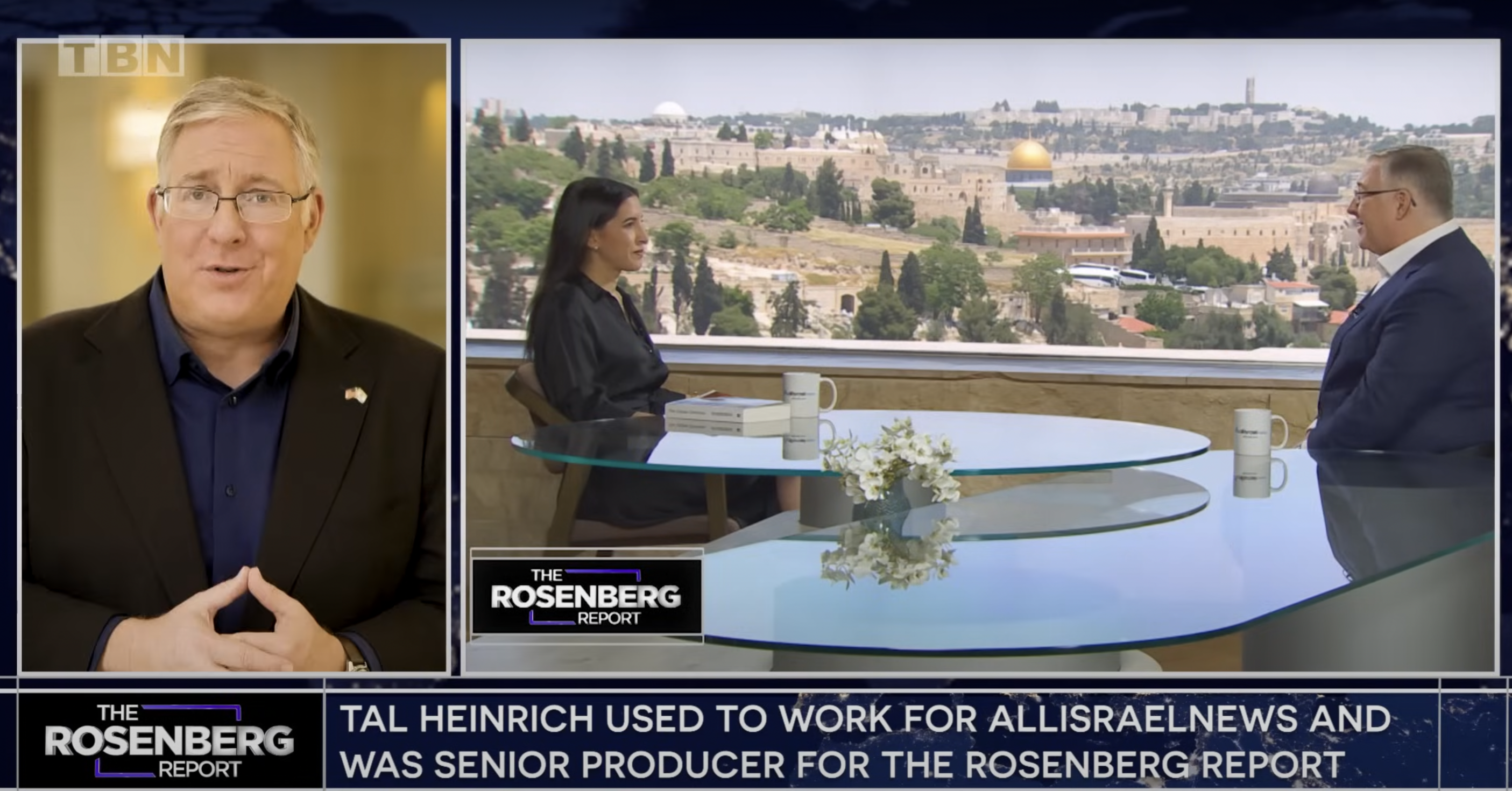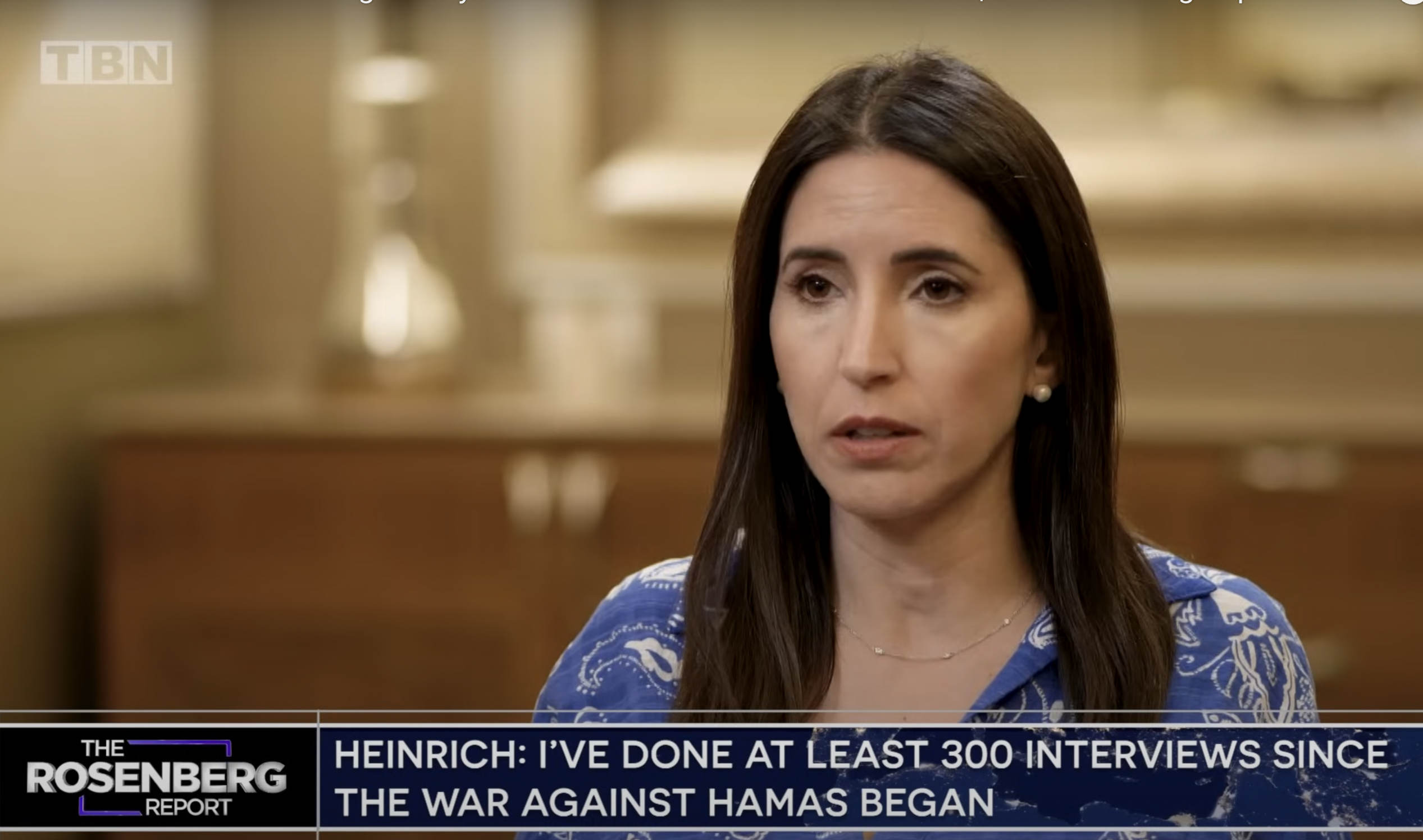What are some of the harsh realities facing nation of Israel and the IDF?
Netanyahu’s spokeswoman Tal Heinrich and Joel Rosenberg analyze media trends throughout the war

“Why does the international mainstream media seem to hate Israel so much and want to attack us at every stage?” ALL ISRAEL NEWS Editor-in-Chief Joel Rosenberg articulated the question that disturbs almost every Israeli in these days.
It is a question that describes a well-known pattern repeated historically in every round of conflict between Israel and its enemies to the South and North, Hamas and Hezbollah. This is why already on Oct. 7, as the Hamas invasion proceeded and atrocities ensued, many in the nation rightfully predicted that it wouldn’t take a long time for the global tide to turn against Israel.
Tal Heinrich, spokeswoman for the Israeli Prime Minister’s Office (PMO), was one of those people. Before the war, she was a senior correspondent for ALL ISRAEL NEWS and a senior producer for THE ROSENBERG REPORT on TBN. When she got called in by Israel’s high office for the PMO role, she took the first available flight from New York to Tel Aviv to join the national effort and has since given hundreds of interviews to international media outlets.

Heinrich sat down with Rosenberg at the Jerusalem Prayer Breakfast 2024 to analyze the media trends throughout the war.
“My job is on one hand to buy time for the operation on the ground. To explain, to remind people why Israel must dismantle Hamas as a governing body and as an army of terror,” she told Rosenberg. “We have to keep reminding people of what happened on October 7 and what happened before October 7 – a reality that many people out there have forgotten about. A reality that Israelis have gotten used to, of missiles raining on their communities for two decades.”
“I also have to remind people that time is running out for our hostages. I try to bring this issue of the hostages in every interview that I do. Even though it's not always the topic… it must be the top issue at the forefront of every discussion about this war,” Heinrich said.
When asked by Rosenberg about the transition between being a journalist to a spokesperson for a government during wartime, Heinrich replied: “I learned that this role takes a different skill. I knew it from before, but only after you give about 300 interviews, you understand the difference… As a journalist, as a news anchor, as a commentator, as a public speaker, you get to speak your mind. Sometimes, you self-censor, but you get to provide your own analysis and your commentary, and suddenly… I speak for a country. I speak for people who are seeking self-defense. If it's Jews, Christians or Muslims who are here in Israel. They targeted all of us on October 7th. They didn't care who voted for who. It's not about politics.”
“I'm in this position where I get to speak for a country and an overwhelming majority that is united behind the three war aims that are; bringing the hostages back home, destroying Hamas’ governing and military capabilities and making sure that Gaza will never, ever pose a terror threat to us again,” she added.
Rosenberg noted that Heinrich, who used to be “on the outside,” is now on the inside of the most elite and highly sensitive government, intelligence and military media operations that Israel runs.
“What's your sense, are we doing better in this war?” he asked.
“In the 2014, IDF Operation Protective Edge (Israel-Gaza war), I was a freelance desk producer here in Jerusalem for CNN International. I remember Mark Regev doing this job, speaking for the Israeli government on-set,” she shared.

As part of her job back then, she often had to make calls to the IDF’s spokesperson’s desk to ask for comment and clarification of events that occurred throughout the war. Heinrich argued that the speed in which Israeli spokespeople are doing things now has changed since the last serious round of fighting with Gaza, highlighting the reduced response time in which questions from reporters and producers get addressed.
Nevertheless, in many incidents throughout the war, the networks chose to rush to conclusions and report numbers and narratives pushed by the Hamas terrorist organization in Gaza, rather than wait for all the facts to come to light.
One such incident took place in the beginning of the war in October, when Israel was mistakenly accused of striking the Al-Ahli hospital in Gaza, killing “500 civilians.” It was later revealed that only a few dozens were killed – not by Israel – but, in fact, by a short-fell missile that was shot by the Palestinian Islamic Jihad.
Then, in late May, international media outlets widely reported that the IDF carried out a strike in a designated “safe zone” for Palestinian civilians outside the city of Rafah. Hamas and the media blamed Israel for dozens of casualties. However, the IDF insisted that it carried out an intelligence-based strike against senior Hamas terrorists – not even close to the safe zone – using precise, small munitions.
A secondary blast that caused the death of civilians was not a direct result of that strike but of a Hamas weapons depot in the area that caught on fire. However, by the time those facts came to light, the damage was already done by the media.
“Also, what you see on social media is very deceiving,” Heinrich pointed out. “You don't know the full story. You don't know the full facts until you wait for them – until you really seek them. You need to want to know the truth. And there are so many lies out there. But that's why we must keep pushing.”
THE ROSENBERG REPORT airs Thursday nights at 9 p.m. EST and Saturday nights at 9:30 p.m. EST – on the Trinity Broadcasting Network (TBN), the most-watched Christian television network in the United States.

The All Israel News Staff is a team of journalists in Israel.
You might also like to read this:














